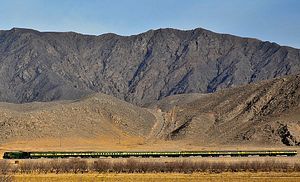Over the past few weeks, fighting between the Pakistani military and Baloch insurgents has intensified in the country’s restive Baluchistan province. Baloch militants’ recent attacks have taken place in the border region with Iran and also closer to the province’s capital, Quetta. In Islamabad, the rising fatalities of security forces have increased fears that Baloch insurgent groups are not on the run and are rather joining forces to frustrate Pakistan’s efforts to restore normalcy to Balochistan.
Some of the recent attacks show a degree of technical sophistication in bomb-making and in the availability of human intelligence needed to track security forces communications in the province. On May 9, a roadside bomb that killed six soldiers, including an army major, was planted to target an officer that the Baloch Liberation Army (BLA), a militant organization operating in the province, accused of leading operations against its networks. The roadside bomb appears to have been installed during regular patrol hours indicating that the group has access to a wide variety of intelligence to track the military’s communications and movements.
In another incident on May 19, a military convoy was hit by a roadside bomb blast near the provincial capital, killing six soldiers. The attack was claimed by the Baloch Liberation Front (BLF), another armed militant organization operating in Balochistan. Reports indicate that Baloch militant groups carried out around 26 attacks in the province during the first three months of 2020.
It’s possible that the BLA and BLF are conducting joint operations. It is important to note that in the past, these groups have not only coordinated attacks against Pakistan’s security forces, but also remain two of the more active militant organizations in the province.
Over the last decade, both groups have also fought against each other as they developed differences over many issues. They have also attempted to undermine each other’s operations.
A report from the Centre of Strategic and Contemporary Research (CSCR) notes that “Because of non-cooperation between BLA and BLF, [the Pakistani] security forces were successfully able to weaken the latter in Awaran [region], which was considered as BLF’s stronghold.” Divisions and infighting among various Baloch militant groups have helped the Pakistani security services in weakening the ongoing insurgent movements in the province. The CSCR report further notes that “nearly 150 separatists associated with the BLA have surrendered since the reported rift within BLA started in late July 2017.”
However, this may not be the case anymore. A growing body of evidence suggests that both factions have not only reconciled, but are also operating under a larger group that comprises of several Baloch insurgent organizations. It’s interesting to note that the Pakistani military’s operation against the BLA and BLF was confirmed by the Baloch Raaji Ajoi Sangar (BRAS), an umbrella group of Baloch insurgent groups operating in the province. The confirmation of the operation that came from BRAS BRAS further underscores that the current militant attacks against the security forces may be the result of a larger group joining forces rather than individual efforts.
During the first week of June, Pakistan quietly launched a major military operation against the BLA and BLF’s operatives near the Iran border. Named as the Ground Zero Clearance Operation, the campaign is aimed at neutralizing various Baloch militant groups’ support bases in the border regions with Iran. Policymakers in Islamabad believe that Baloch militant groups’ ability to attack Pakistani forces successfully is due to Iran’s inability to take action against their sanctuaries in its border region with Pakistan. “The training camps and logistical camps of this new alliance (BRAS) … are inside the Iranian border region,” said Pakistan’s Foreign Minister recently. For Pakistan, the challenge coming from the Iranian border region is one of the main reasons for Islamabad’s insistence on fencing the 900 km long shared frontier with Iran. However, successful fencing and monitoring of the border is unlikely to happen unless Tehran offers its support to Pakistan and becomes a party to the project. To this end, Pakistan’s policy makers need to ensure that the project adequately develops stakes for Iran’s security to gain the latter’s cooperation.
In the coming weeks and months, Pakistan’s security forces will have to allocate more resources and personal to check militant activity on the Iranian border region. The likely alliance of the BLA and BLF under BRAS means that Pakistan’s efforts to weaken and divide militant groups in the region have not been effective. A number of recent attacks in the province indicate that militants local contacts remain intact and more efforts are needed to uproot insurgent groups local support base. Pakistan’s efforts to secure Balochistan for mega development projects are falling short of attaining their desired goals.













